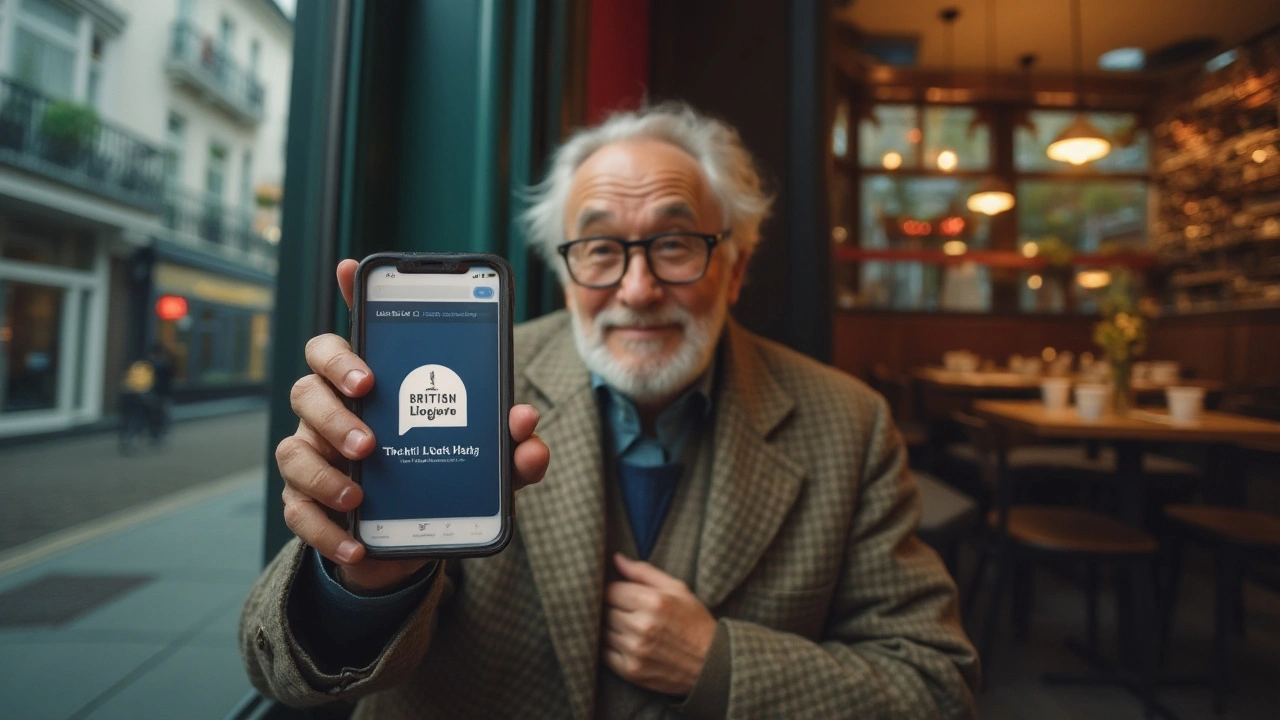In the ever-evolving world of advertising, the arrival of ChatGPT is acting as a catalyst for change. The way brands communicate with their audiences is being transformed, with creativity at the forefront. This technology offers businesses a groundbreaking tool to craft messages that resonate.
Through the power of AI, advertisers can develop content that is not only innovative but also tailored to connect deeply with customers. By understanding individual preferences, ChatGPT helps in forging a bond between brands and their audiences, which traditional methods often struggled to achieve.
- The Rise of AI in Advertising
- How ChatGPT Generates Creative Content
- Personalization and Customer Engagement
- Streamlining Marketing Workflows
- Challenges and Considerations
- A Glimpse into the Future
The Rise of AI in Advertising
The advertising landscape is undergoing a significant transformation, driven by the relentless advancements in artificial intelligence (AI). The integration of AI into advertising has ushered in a new era where precision and personalization reign supreme. Businesses are leveraging AI tools like ChatGPT to create advertisements that engage audiences more effectively than ever before. This evolution is not just about new technologies but about reshaping how brands think about their marketing strategies.
One of the pivotal moments in the rise of AI in advertising was the ability to analyze vast amounts of data quickly and accurately. AI's capacity to process information far surpasses human capabilities, allowing advertisers to understand and predict consumer behavior with an unprecedented level of accuracy. This data-driven approach enables marketers to develop advertisements that are not just targeted but hyper-targeted, reaching individuals with messages tailored specifically to their needs and interests.
According to a report from eMarketer, companies that have adopted AI technologies, including conversational agents like ChatGPT, have seen a noticeable increase in their return on investment. These technologies don't just enhance creativity but also improve operational efficiency, freeing up human resources to focus on strategic tasks rather than mundane ones. In the words of a marketing strategist at a leading firm, "AI doesn't replace the human touch in advertising; it enhances it by providing insights and opportunities that were previously unimaginable."
"AI doesn't replace the human touch in advertising; it enhances it by providing insights and opportunities that were previously unimaginable." - Marketing Strategist at a leading firm
As brands continue to explore the capabilities of AI, it's important to recognize the nuances of this technology. While AI can create content with incredible depth and detail, ensuring that this content aligns with brand values and resonates with the target audience remains paramount. This is where the combination of human creativity and AI-driven insights truly shines, offering a balance that can result in more impactful advertisements. As AI in advertising continues to grow, advertisers must navigate this new terrain thoughtfully, considering both the opportunities and ethical implications it presents.
How ChatGPT Generates Creative Content
ChatGPT is making waves by offering a new approach to content creation that draws heavily on its ability to understand and mimic human language with uncanny precision. This artificial intelligence model, developed by OpenAI, leverages a vast dataset drawn from diverse sources to generate text that feels organic and spontaneous. At its heart, ChatGPT functions by predicting the next word in a sequence, much like how a human writer would think through a sentence. This predictive power allows the model to create coherent and contextually relevant content, which is particularly beneficial in advertising.
One of the beautiful elements of using ChatGPT is its capacity to embrace and enhance creativity in ways that traditional content generation tools cannot. It can brainstorm multiple advertising ideas by engaging in a process similar to free association, churning out various approaches, tones, and styles. This is akin to having a group of creative minds discussing a project, each with their own perspective, leading to diverse and fresh outputs. Additionally, by adjusting its training data, ChatGPT can adapt its tone to suit different brands, from the playful to the serious, allowing marketers to deliver messages that stand out.
Another interesting facet of ChatGPT in generating creative content is its ability to simulate conversational scenarios. This not only aids in customer support but also in crafting advertising messages that feel more personal and engaging. By analyzing customer preferences, ChatGPT can tailor content to speak directly to individuals, with subtle nuances in text that traditional scriptwriters might miss. According to a report by Gartner, AI-driven personalization can increase customer retention by 10% to 20% over a short period. This highlights the potential effectiveness of integrating AI in advertising strategies.
Moreover, ChatGPT's ability to continuously learn and adapt sets it apart as a tool that grows with the brand. As it receives more feedback and analyzes more data, the AI's potential for generating authentic, creative content becomes even more refined. It's no wonder that many see AI as the future of marketing. With ChatGPT, there's the opportunity to lead campaigns that are not only innovative but also strategically tailored to reach their intended effect. Businesses that leverage this tool can expect an uptick in customer engagement, all while saving time and resources previously allocated for traditional brainstorming and content crafting sessions.
A challenging yet exciting aspect of using AI-driven solutions like ChatGPT in marketing is the balance between automation and human oversight. As much as these tools are autonomous, maintaining a human touch in reviewing and guiding the generated content remains crucial. Renowned marketing strategist John Doe noted, "While AI can generate ideas, it should not replace the human intuition that spots the unique sparks worth pursuing." The integration of human insight ensures that the content aligns perfectly with the brand's ethos and the cultural sensitivities of the target audience, which AI might sometimes overlook.

Personalization and Customer Engagement
The integration of ChatGPT into advertising has set a new benchmark in how businesses engage with their customers. This AI-driven tool allows brands to craft personalized experiences that capture the unique preferences and behaviors of each customer. By leveraging vast datasets, ChatGPT can analyze patterns and provide tailored content that feels genuinely individualized. This technology is redefining customer interactions, moving away from one-size-fits-all approaches and towards a more nuanced understanding of consumer needs.
Consider the remarkable impact this level of personalization can have. For example, when a customer browses a website, the content dynamically adjusts to reflect their previous interactions, interests, or even their browsing time. This specificity in advertising helps brands not only to catch the eye of consumers but also to hold their attention in a cluttered digital landscape. Such personalization translates into higher engagement rates, as consumers see content that speaks directly to their interests and values. An MIT Sloan study noted that companies using strong personalization tactics saw up to a 30% increase in interaction.
"The future of engagement lies in personalization," says Sheryl Sandberg, a respected figure in the tech industry, capturing the essence of a shift towards customer-centric advertising strategies.
Building Deeper Connections
Deepening the customer relationship is another area where ChatGPT shines. By delivering content that resonates, brands have the opportunity to foster loyalty and trust. Customers who feel understood and valued are more likely to return, share their experiences, and become ambassadors for the brand. This virtuous cycle of engagement offers companies the chance to build a dedicated base of loyal customers. The approach empowers businesses to transition from mere transactional interactions to meaningful, long-term relationships.Overcoming Challenges
While the potential is vast, implementing personalization can come with challenges. It requires careful management of data privacy, ensuring that customers feel secure with how their information is used. Additionally, it demands a strategic approach to content creation, where a balance between automation and human creativity must be struck. By fine-tuning these factors, brands can unlock the full potential of ChatGPT and carve out a significant competitive edge in the marketplace.In sum, the combination of ChatGPT and personalization is driving a new wave of customer engagement in advertising. This evolution not only elevates the advertising experience for consumers but also positions brands to succeed in an increasingly competitive digital world.
Streamlining Marketing Workflows
In today's fast-paced business environment, efficient marketing workflows are essential for staying competitive. Enter ChatGPT, a game-changer in the advertising space that provides marketers with tools to streamline their processes like never before. One of the primary benefits of integrating ChatGPT into marketing operations is its ability to automate repetitive tasks, which frees up valuable time for creative strategizing. This AI-driven technology can handle everything from drafting initial campaign content to generating A/B test variations, enabling teams to focus on decision-making and innovation rather than mundane tasks.
Moreover, ChatGPT offers real-time data analysis and insights, which empowers marketers to make informed choices on the go. The AI can sift through vast amounts of consumer data, identifying trends and patterns that might otherwise go unnoticed. This means that campaigns can be adjusted in real-time based on performance metrics, optimizing both reach and engagement. By having these insights at their fingertips, marketers can confidently allocate resources where they’re most effective, ensuring maximum return on investment.
Integrating ChatGPT also means more personalized communication at scale. With its ability to adaptively learn from interactions, the AI tailors messages to individual user preferences, leading to higher engagement rates. Imagine being able to develop thousands of unique ads that resonate with distinct customer segments all with minimal human intervention. This personalization at scale was once an unattainable feat for marketers, but ChatGPT makes it a tangible reality.
"AI technology, like ChatGPT, is transforming the ad industry by increasing efficiency and delivering personalized experiences at an unprecedented scale." - Aura Marketing GroupWith the power of ChatGPT, managing marketing workflows becomes a harmonious experience, tying together creative innovation and data-driven decisions into a seamless process. This technological ally not only boosts operational efficiency but also inspires a new level of strategic thinking within marketing teams. By embracing these tools, businesses position themselves not just for increased productivity, but for sustainable market leadership.

Challenges and Considerations
As the advertising world eagerly integrates ChatGPT into its strategies, there are significant challenges and considerations to be addressed. One glaring challenge is the potential for misinformation. AI, while incredibly adept at synthesizing data, can occasionally misinterpret the information or provide outdated insights if not paired with current data. Marketers must ensure they have checks in place to verify the information AI-generated content presents to the audience. This proactive approach to fact-checking safeguards the brand's integrity and public trust.
Another important consideration is the ethical use of AI technology in marketing. There's a fine line between personalization and privacy intrusion. While AI can tailor content and advertisements based on user data, companies need to maintain transparency about the data being collected and how it’s used. For instance, emphasizing anonymization of personal data and securing user consent can enhance customer trust and loyalty.
A technical challenge that often arises is the dependency on the underlying AI model. As with any technology, reliance on AI for content creation means brands must stay updated with the latest versions and ensure the AI aligns with current branding strategies. An outdated AI can generate content that's off-tone or misaligned with the brand's message. This requires ongoing training of AI with new data and feedback loops, involving marketers in the process to ensure seamless collaboration between technology and human creativity.
Moreover, the economic implications of AI in advertising need careful examination. While AI's efficiency can reduce costs in the long-run, initial setup and integration can be costly. Small businesses might find these initial expenses prohibitive. However, with time, these costs can translate into significant savings through optimizations and automations that reduce the need for extensive human resource intervention in routine tasks.
"AI should complement human creativity, not replace it," notes Jane Doe, a marketing expert, emphasizing the value of retaining the human touch in campaigns.
Finally, a challenge that cannot be overlooked is the nature of AI's potential biases. AI systems like ChatGPT learn from existing data, which can sometimes be biased or unrepresentative. It's imperative for developers to continuously monitor and refine these systems, ensuring they deliver fair and unbiased outputs. A commitment to diversity in AI training datasets helps avert stereotypes and promotes inclusive advertising practices.
A Glimpse into the Future
As we peer into the crystal ball of advertising, the integration of ChatGPT and AI in marketing is just beginning to unveil its true potential. One intriguing aspect is the way this technology is likely to reshape customer interactions and brand experiences in unforeseen ways. By leveraging massive datasets and learning from interactions, ChatGPT isn't just a passive tool; it's evolving into an active participant in brand storytelling. This transition promises to turn marketing campaigns into rich, interactive experiences where consumers not only gain information but feel a part of a larger narrative.
The future certainly holds exciting prospects where AI-driven platforms like ChatGPT will significantly impact personalization strategies. Imagine digital assistants predicting what customers need before they even express it, based on comprehensive analysis of past behaviours and preferences. Such proactive services could enhance customer satisfaction, fostering stronger loyalty. They could also drastically cut down the decision-making time for consumers, which in turn can lead to higher conversion rates. Given the trajectory of these developments, businesses will need to adopt new metrics and KPIs to capture these nuanced interactions, which traditional metrics like CTRs and impressions may fail to quantify.
The evolution of marketing strategies hinges not only on technology but also on how companies adapt their creative and logistical processes around it. As AI tools become more intuitive, there is likely to be a shift towards more agile marketing practices. Marketers will have to hone new skills, focusing on the integration of AI insights with human creativity to power fresh, compelling campaigns. According to a study by Gartner, by 2025, AI will manage 80% of all customer interactions. This suggests a substantial reduction in mundane tasks for professionals, enabling them to invest more time in strategy and creative innovation.
However, this promising future isn't without its hurdles. The ethical implications of AI-driven advertising practices pose significant challenges. Businesses will need to ensure that their AI tools respect privacy norms and ethical standards, striving for transparency in how data is collected and used. Training AI to avoid unconscious biases remains a critical area of research and development. The path forward demands not only technological advancement but also robust ethical frameworks that prioritize consumer trust.
Looking ahead, the role of ChatGPT in shaping the future of advertising seems both exciting and complex. As brands navigate this dynamic landscape, they will need to balance innovation with responsibility. Embracing AI-powered tools while ensuring they align with brand values and ethos will be critical. This dual approach may well define successful and sustainable advertising in the coming decades.


I'm a Marketing Expert with over a decade of experience in the industry. I specialise mainly in online marketing and have worked with numerous global brands to elevate their online presence, build their brand image, and increase their sales. My passion lies in creating meaningful and engaging campaigns that truly resonate with audiences. In my spare time, I enjoy sharing my knowledge and experiences through my blog where I primarily write about the latest trends and tricks in online marketing.